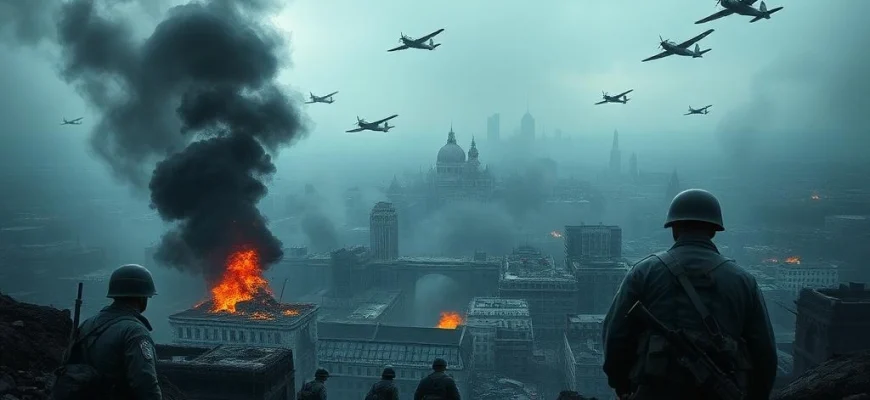If you enjoyed the gripping wartime drama of 49th Parallel (1941), you'll love these 10 similar films and shows. This article explores titles that share its themes of survival, tension, and moral dilemmas during conflict, offering fans of the classic movie new stories to dive into.
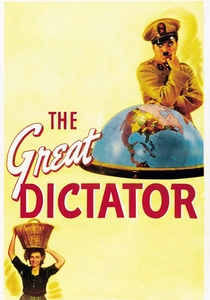
The Great Dictator (1940)
Description: A satirical take on war and dictatorship, blending humor with serious political commentary, much like the blend of drama and propaganda seen in the reference film.
Fact: Charlie Chaplin's first full talkie and a bold political statement against fascism, released before the U.S. entered WWII.
 Watch Now
Watch Now 
Mrs. Miniver (1942)
Description: A wartime drama focusing on the resilience of ordinary people during conflict, emphasizing the human cost of war and the spirit of unity.
Fact: Won six Academy Awards, including Best Picture, and was praised by Winston Churchill for boosting Allied morale.
 Watch Now
Watch Now 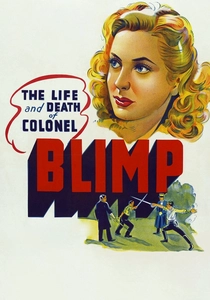
The Life and Death of Colonel Blimp (1943)
Description: Explores themes of honor, tradition, and the changing nature of warfare, with a narrative that spans decades and reflects on the personal impacts of global conflict.
Fact: Initially controversial for its sympathetic portrayal of a German officer, it's now considered one of the greatest British films ever made.
 Watch Now
Watch Now 
The Way Ahead (1944)
Description: A morale-boosting film about the training and camaraderie of soldiers, highlighting the transformation of civilians into a cohesive fighting unit.
Fact: Originally commissioned as a training film for the British Army, it was later expanded into a feature-length movie for general audiences.
 Watch Now
Watch Now 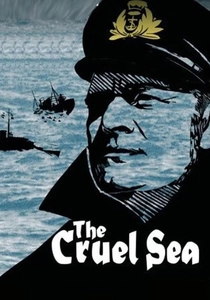
The Cruel Sea (1953)
Description: A gritty, realistic portrayal of naval warfare, focusing on the psychological and emotional toll on sailors, much like the intense, human-centered war narratives.
Fact: Based on a best-selling novel by Nicholas Monsarrat, who drew from his own experiences in the Royal Navy during WWII.
 Watch Now
Watch Now 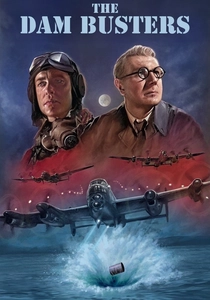
The Dam Busters (1955)
Description: A dramatization of a real-life WWII mission, combining technical detail with heroic storytelling, similar to the blend of fact and fiction in war films.
Fact: The film's iconic theme music was later used by Led Zeppelin in their song 'The Crunge.'
 Watch Now
Watch Now 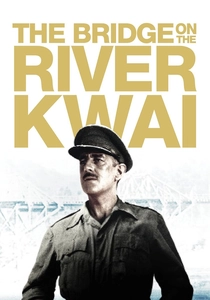
The Bridge on the River Kwai (1957)
Description: A profound exploration of duty, obsession, and the futility of war, with a focus on the psychological struggles of soldiers and prisoners.
Fact: Won seven Academy Awards, including Best Picture, and was filmed in Ceylon (now Sri Lanka) under challenging conditions.
 Watch Now
Watch Now 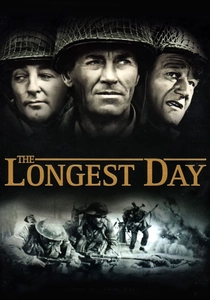
The Longest Day (1962)
Description: An epic, multi-perspective account of D-Day, emphasizing the scale and coordination of Allied forces, much like grand war narratives.
Fact: Features a star-studded international cast and was one of the most expensive black-and-white films made at the time.
 Watch Now
Watch Now 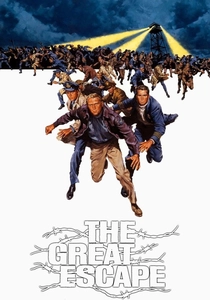
The Great Escape (1963)
Description: A thrilling tale of resilience and ingenuity, focusing on the camaraderie and determination of POWs, akin to stories of survival and defiance.
Fact: Based on a true story, though the film takes significant liberties with the actual events for dramatic effect.
 Watch Now
Watch Now 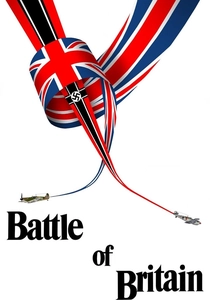
Battle of Britain (1969)
Description: A large-scale depiction of aerial combat, highlighting the bravery of pilots and the strategic importance of the battle, similar to other grand war epics.
Fact: Used real WWII-era aircraft, some of which were the last of their kind, and featured extensive aerial sequences.
 Watch Now
Watch Now 
